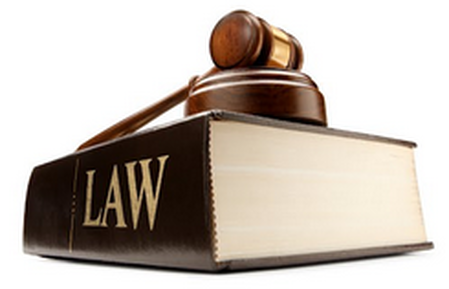
Typically, when filing a lawsuit in any given state, either where your injury took place or where your opponent lives or operates their business. There are specific venue rules which guide this decision-making.
Document all your damages and expenses, such as pain and suffering. While non-economic damages are sometimes hard to calculate, evidence such as medical bills, receipts, work loss reports or other documentation may help establish their existence.
Location of the Accident
If you have been injured in an accident that happened at home, work, or on the road, filing a personal injury claim with the appropriate insurer should be your top priority. This may involve filing a No-Fault insurance claim with either the vehicle that caused your crash (if insured) or, in cases involving pedestrian accidents, with those responsible – such as drivers.
Your attorney can assist in filing the necessary paperwork to document your accident, injuries and losses before negotiating with the insurance company to establish how much compensation should be awarded for them. In order to maximize compensation claims it is essential to have detailed medical records showing how an injury has affected your life including future needs discussions so as to maximize justice being served to ensure you receive what compensation you are owed.
Once a settlement has been agreed upon, your insurance company will send a notice from PIAB (Plaintiffs Injuries Assessment Board), detailing how much compensation they have assessed for your injury. In certain instances PIAB may deviate from Personal Injuries Guidelines but must explain its reasoning beforehand.
Your case could go to trial, with a judge or jury determining how much reparation is due to you. Most personal injury lawsuits, however, tend to settle rather quickly as parties agree upon an acceptable sum to cover expenses and losses associated with injury claims.
No matter whether or not your case proceeds to trial or is settled, the court will evaluate your evidence and decide how much compensation should be awarded for your losses. This decision may be reached based on settlement agreement or verdict from judge/jury; having an experienced lawyer on board ensures you get what is owed to you; for instance if an amount awarded seems inadequately, an experienced lawyer can challenge this ruling and request an arbitrator make their determination.
Damages
Personal injury cases often cover an array of costs and losses known as damages, such as lost earnings, medical bills, future medical expenses, permanent impairment, pain and suffering compensation and more. Most often the person injured will receive payment to cover these costs.
An attorney can help you file a formal court complaint to establish your claims and amount sought as compensation. During litigation, both sides exchange information and evidence. Your lawyer can help collect evidence to support both your injuries as well as how much compensation should be awarded for them.
Proving injuries and damages can be complex, but an experienced lawyer will guide you through each step of the process. He or she can work with experts to identify all parties who might be at fault, while reviewing medical records to ascertain how severe your injuries are.
Personal injury cases typically involve accidents; however, you can also file claims involving intentional torts such as assault and battery, defamation, and wrongful death. A lawyer can explain which torts apply in your particular situation.
Damage categories in a personal injury suit can often be easily quantified, such as medical bills and travel costs, while others such as pain and suffering or lost enjoyment are more difficult to quantify. An experienced personal injury attorney can assist in calculating these non-economic damages before presenting them before the jury for consideration.
Workers’ compensation covers many accident-related losses, but you can file a personal injury claim for additional losses you’ve incurred as well. Doing so might allow for higher compensation to cover pain and suffering and loss of enjoyment than what workers’ comp provides.
Statute of Limitations
Most states, including New York, enact statutes of limitation that set forth how long someone has after an incident to file a personal injury suit. This law is meant to encourage plaintiffs to seek legal remedies sooner rather than let their case lapse; furthermore it serves societal interests by making sure lawsuits can be resolved quickly before witness memories deteriorate or evidence becomes difficult to gather.
Statutes of limitations differ significantly by state and type of claim; to make sure you meet deadlines without losing leverage in settlement negotiations. Failing to do so could even result in your claim being dismissed entirely.
Personal injury cases typically begin running on the date that an incident caused injury; however, special rules apply in more complex instances; minors have three years from turning 18 to file their lawsuit.
Some cases may also fall under the “discovery rule,” which dictates that the statute of limitations begins once it could have reasonably been discovered (rather than when the injury happened). As its exact meaning and application vary depending on both case and jurisdiction, having an experienced lawyer by your side can make all the difference in outcomes.
Additionally, when filing a suit against government entities such as municipalities there may be stricter timelines for filing a notice of claim than with private entities – for instance in New York City you only have 90 days after an accident to do so with them.
As soon as you experience any type of injury, it is crucial that you contact a lawyer immediately so as not to run out the statute of limitations. Doing so could require a significant amount of work including collecting and reviewing medical records, interviewing witnesses and creating legal strategies – this leaves little room for error and may prevent you from seeking the compensation that you are due.
Choosing a Lawyer
An experienced attorney is essential in any personal injury claim, but finding the ideal representative goes beyond being simply legal; they become your friend and advocate. When selecting your personal injury attorney, factors like pricing, personality, candor, experience and legal strategy should all be taken into consideration to find someone suitable. Finding your ideal representation could result in more favorable settlement terms for your case.
As soon as a person is injured, medical bills begin to mount up quickly, they miss work days due to their injuries, their quality of life is drastically impacted and emotional and financial strain for families ensues. When filing a personal injury claim against someone, these costs and damages may be sought as compensatory or general damages respectively.
Many personal injury claims settle out-of-court rather than proceeding to trial, making it essential to have an aggressive case ready in order to pressure those at fault into offering fair settlement offers. Your lawyer can create a demand letter which includes five key components: facts and evidence which prove the defendant liable; nature and extent of injuries suffered and their effects upon life; past, current, and projected future medical expenses; total losses including income lost through lost work time.
The final part of your demand letter should contain your requested monetary recovery, including both special and general damages you are seeking. In order to prove special damages such as medical records costs, as well as non-economic ones such as mental health professionals pain and suffering costs.
Keep in mind that anything you say to an insurance company or anyone else could be used against you in court; thus, it is vital that you hire an experienced attorney to guide through this process.



